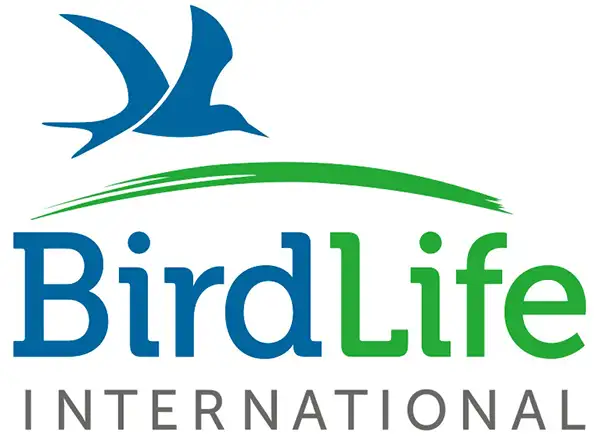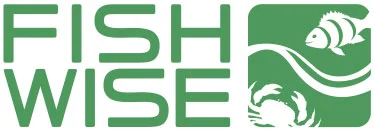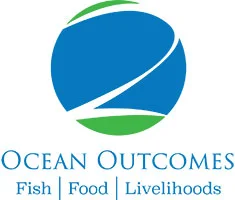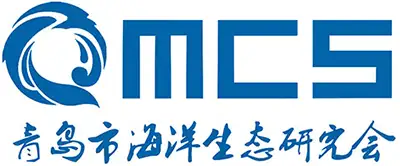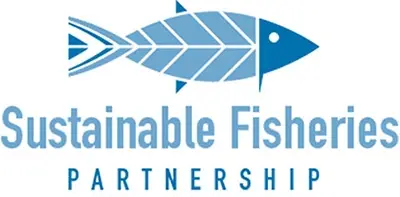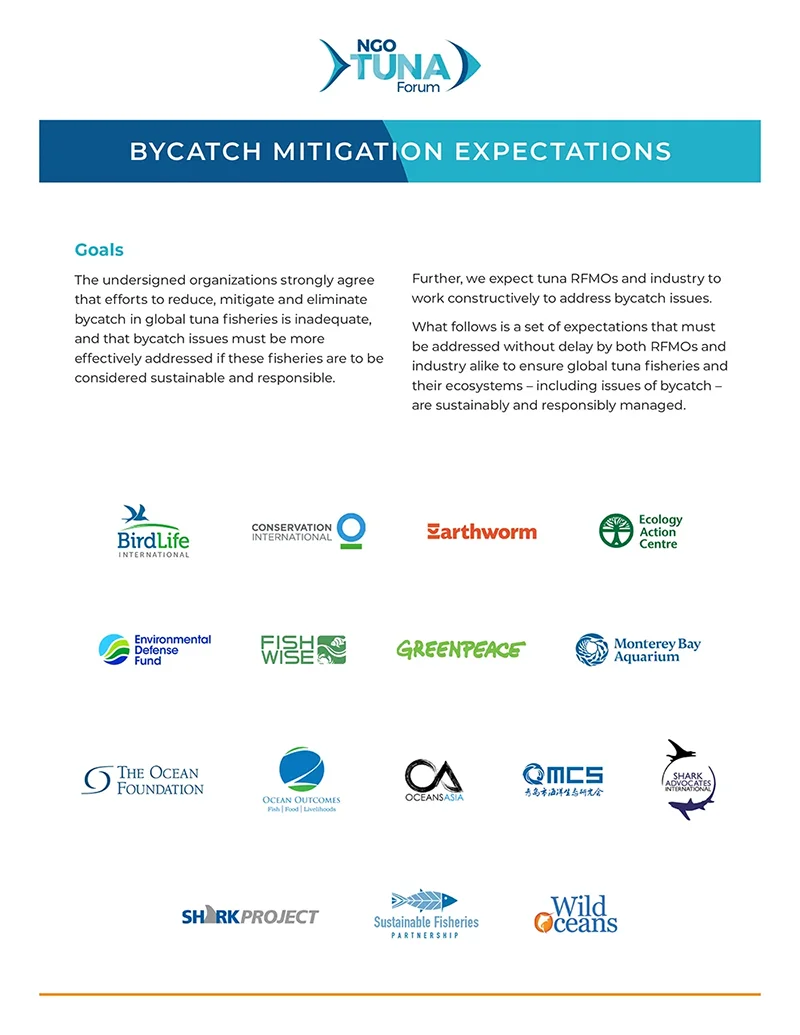Bycatch Mitigation
Bycatch is defined as discarded catch of any living marine resource plus retained incidental catch and unobserved mortality due to a direct encounter with a fishing gear.
Source: National Marine Fisheries Service (NMFS) U.S.
Goals
The undersigned organizations strongly agree that efforts to reduce, mitigate and eliminate bycatch in global tuna fisheries is inadequate, and that bycatch issues must be more effectively addressed if these fisheries are to be considered sustainable and responsible.
Further, we expect tuna RFMOs and industry to work constructively to address bycatch issues.
What follows is a set of expectations that must be addressed without delay by both RFMOs and industry alike to ensure global tuna fisheries and their ecosystems – including issues of bycatch – are sustainably and responsibly managed.
Our Collaborative Position
Effective avoidance and mitigation of bycatch is a critical component of sustainable tuna fisheries.
A tuna fishery cannot claim to be sustainable and responsible if effective measures are not in place to avoid causing unsustainable impacts upon non-target and/or ETP species and measures to safely release bycatch are not sufficiently effective to minimize mortality of a species. Further, management approaches must be both precautionary and ecosystem based.
READ MORE
Unfortunately, bycatch issues are under-addressed across global tuna fisheries and more must be done to reduce, mitigate and eliminate bycatch through the development and implementation of, and compliance with, management measures, as well as greater data collection, data reporting, and data sharing for purposes of management, science, and compliance.
We can no longer afford to insufficiently address the impacts of bycatch in tuna fisheries upon non-target and/or ETP species – these impacts must be prioritized, and RFMOs, fleet, and markets must take proactive action to address these issues.
In support of our collaborative position, we expect:
- Adoption, implementation of, and compliance with best available policies and approaches to effectively reduce bycatch of non-target and/or ETP species.
- Improved bycatch data collection and reporting for purposes of science, compliance, and accountability.
- Adequate monitoring of all tuna vessels.
- Implementation of policies and systems to facilitate improved compliance and accountability.
- Public access to information, with limited restrictions only when necessary.
RFMO Expectations
Empty
Adoption, Implementation of, and Compliance with Best Available Policies and Approaches to Effectively Reduce Bycatch of Non-Target and/or ETP Species
Improved Bycatch Data Collection and Reporting for Purposes of Science, Compliance and Accountability
Adequate Monitoring of All Tuna Vessels
Implementation of Policies and Systems that Facilitate Compliance and Accountability
Public Access to Information, with Limited Restrictions Only When Necessary
Market and Supply Chain Partner Expectations
Empty
Adoption, Implementation of, and Compliance with Best Available Policies and Approaches to Effectively Reduce Bycatch of Non-Target and/or ETP Species
Improved Bycatch Data Collection and Reporting for Purposes of Science, Compliance and Accountability
Adequate Monitoring of All Tuna Vessels
Implementation of Policies and Systems that Facilitate Compliance and Accountability
Public Access to Information, with Limited Restrictions Only When Necessary
RFMO/Market Integrated Expectations
Test
Adoption, Implementation of, and Compliance with Best Available Policies and Approaches to Effectively Reduce Bycatch of Non-Target and/or ETP Species
Improved Bycatch Data Collection and Reporting for Purposes of Science, Compliance and Accountability
Adequate Monitoring of All Tuna Vessels
Implementation of Policies and Systems that Facilitate Compliance and Accountability
Public Access to Information, with Limited Restrictions Only When Necessary
